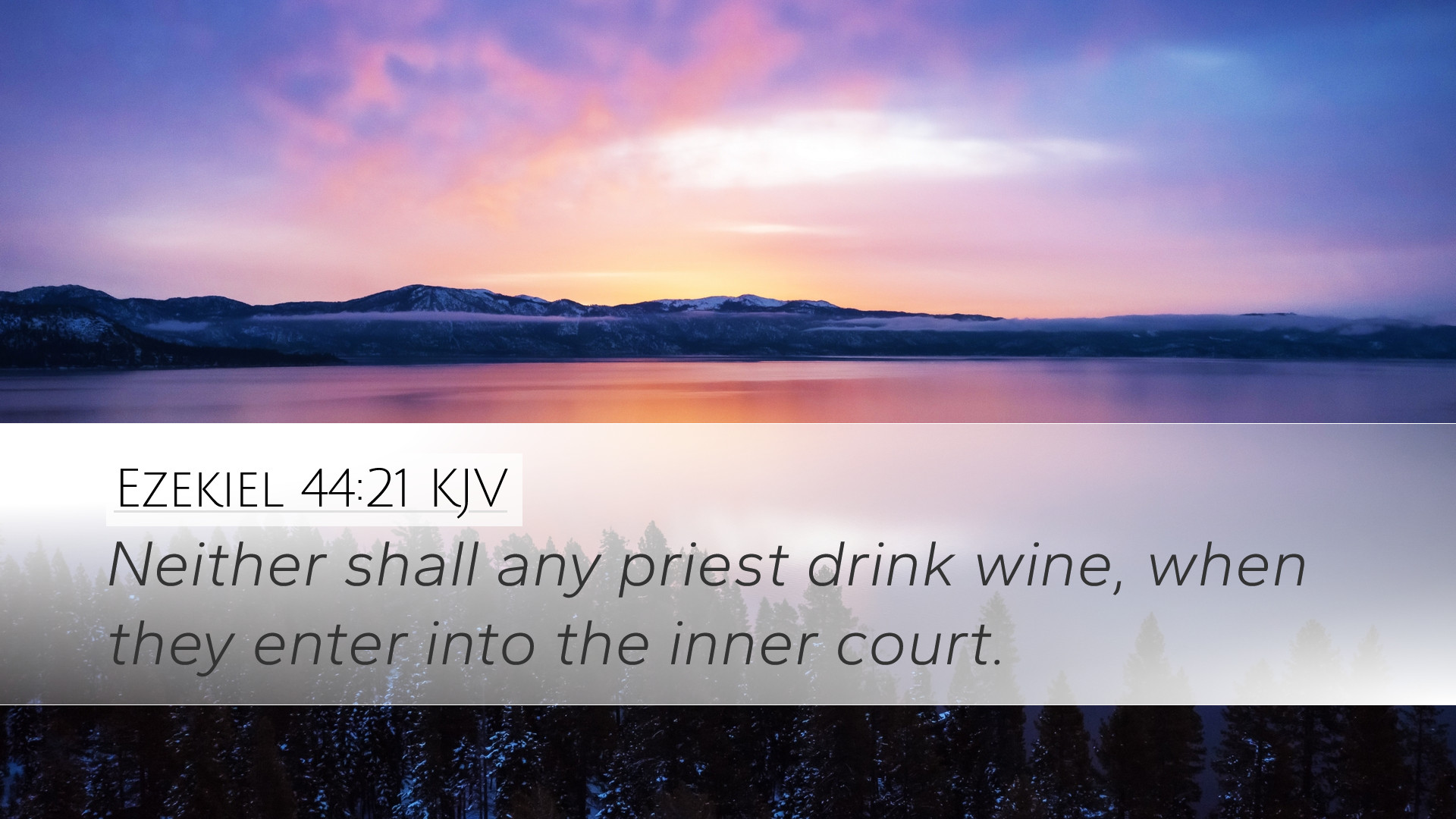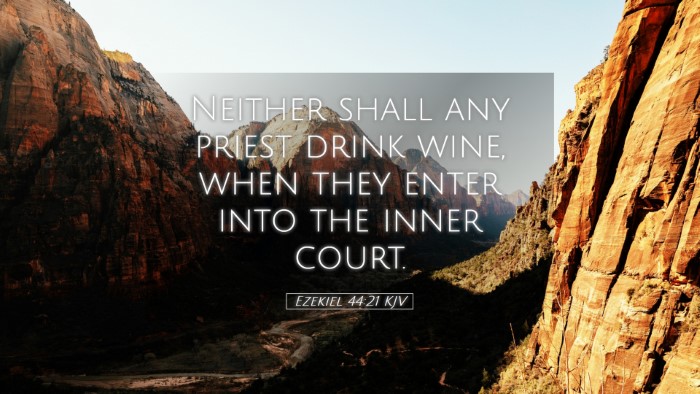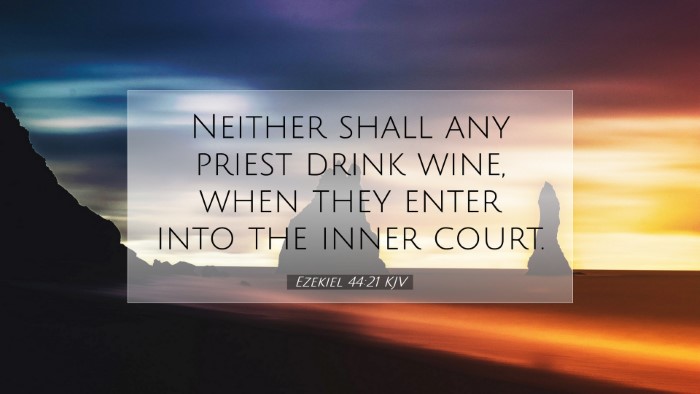Ezekiel 44:21 - Commentary Summary
Ezekiel 44:21 states: "Neither shall any of the priests drink wine, when they enter into the inner court." This verse appears within the context of the rules and regulations governing the conduct of the priests and Levites in the newly established temple system, highlighting the seriousness of their ministry.
Contextual Background
The Book of Ezekiel, one of the major prophetic texts, addresses the people of Israel during their Babylonian exile. In chapters 40-48, Ezekiel transitions from prophecies concerning the impending judgment to descriptions of a new temple that symbolizes hope and restoration for Israel. The verse in question emphasizes the holiness required in worship and the expected behaviors of those who serve as spiritual leaders.
Commentary Insights
Matthew Henry's Commentary
Henry observes that the priests are specifically mandated to abstain from wine when entering the inner court, as this act signifies a state of focus and purity.
- Significance of Abstinence: Henry interprets this abstinence as a necessity for the priests to maintain clarity of mind and moral integrity while performing their sacred duties. In effect, the act of drinking could impair their judgment and disrupt their connection with God.
- Holiness of the Priesthood: The prohibition signifies the high standard of holiness expected of priests, reflecting God’s desire for His ministers to be models of godliness. The inner court symbolizes an area of utmost reverence, warranting complete sanctity.
Albert Barnes' Commentary
Barnes provides additional insights into the practicality of this divine directive, stressing that the guidelines established for the priests are rooted in the desire for a distinct separation from secular influences.
- Ritual Purity: He argues that the avoidance of wine serves as a safeguard against any form of impure behavior or spiritual compromise when fulfilling their priestly roles. This avoidance emphasizes the notion that priests are to uphold a lifestyle that is markedly different from the laity.
- Alcohol and Leadership: Barnes correlates this principle to modern leadership standards, suggesting that those in ministry should similarly prioritize sobriety and discernment in all aspects of their leadership and ministry functions.
Adam Clarke's Commentary
Clarke elaborates on the broader implications of the command, interpreting it as a reflection of God’s expectations regarding worship and the priestly office.
- Moral Implications: Clarke highlights the moral responsibility that the priests bear, stating that their actions and choices should serve as examples to the people. Their abstinence from wine within sacred spaces signifies a commitment to righteousness and piety.
- Establishing Authority: The directive may also serve to establish the authority of the priesthood, delineating their function and reminding the community of the sacredness of their roles.
Theological Reflections
The principle of maintaining purity and holiness reflects deeper theological themes throughout Scripture. The call to holiness echoes in 1 Peter 1:15-16, which states: "But as he who called you is holy, you also be holy in all your conduct."
- Modern Application: For contemporary congregations, the call to holiness should inform the lives of today’s ministers and believers alike, reminding them of their witness to the world.
- Spiritual Leadership: The text encourages spiritual leaders to prioritize their relationship with God above all, adhering to principles that lead to a fulfilling and effective ministry.
Conclusion
Ezekiel 44:21 serves as a compelling reminder of the requirements placed upon the priests, symbolizing a broader call to holiness and accountability in ministry. The insights drawn from esteemed commentaries encourage deeper reflection on the calling each believer and leader possesses, resulting in a life that glorifies God through obedience and reverence.


